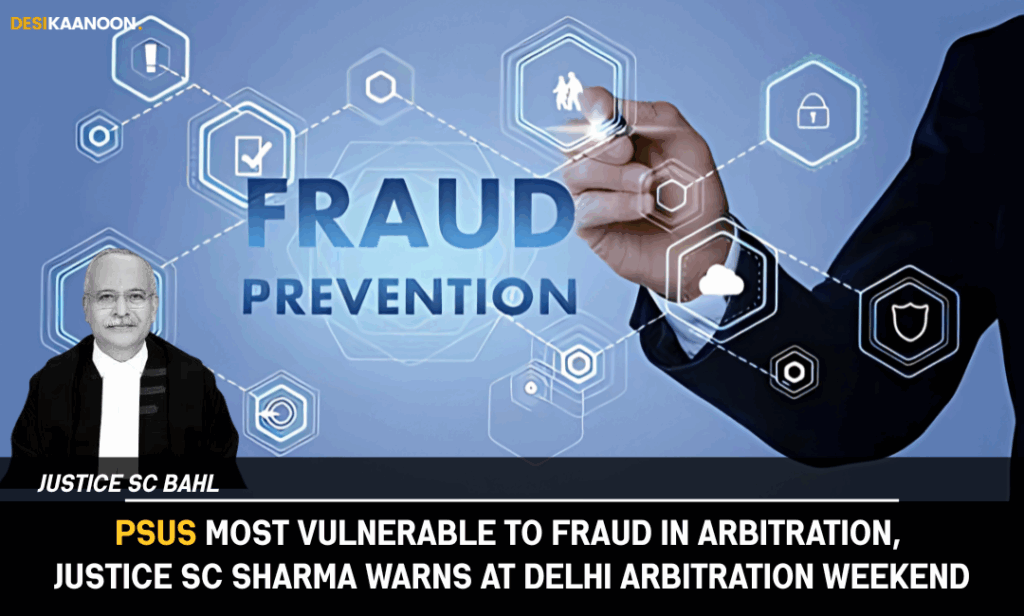Shreya Gupta
On 17th September, 2025, Justice Satish Chandra Sharma warned that Public Sector Undertakings (PSUs) are the biggest victims of financial fraud and irregularities in arbitral proceedings, alleging that at almost every stage of contract-making and arbitration, “there are people in the PSUs ensuring that the balance always tilts in favour of the other side.”
He said, in stark terms, “One mole in a public sector undertaking ensures that the agreement is drafted to help the other side. Another mole ensures that during arbitral proceedings, the award is passed in favour of the other party. And it becomes very difficult for a 34 and 37 Court,” (referring to Sections 34 and 37 of the Arbitration and Conciliation Act that deal with setting aside awards and appeals). Speaking on 16th September , Justice Sharma stressed that although courts may “smell the fraud and financial crime,” it is often difficult to set aside the arbitral award; he gave the Devas–Antrix dispute as a personal example, saying “Devas-Antrix was one such case.” He also rejected the argument that conducting probes, even if they prolong arbitration, can be an excuse for allowing financial fraud to go unchallenged.
The remarks came at a Quadrant Chambers discussion during Delhi Arbitration Weekend, which brought in international and English-law perspectives. John Passmore KC highlighted the Nigeria v P&ID saga, a 20-page gas supply and processing contract that spawned arbitral proceedings resulting in a $6.6 billion award against Nigeria despite “questionable evidence,” an award which was ultimately set aside by the English High Court.
Jonathan Leach emphasised the role of supervisory courts: while arbitration’s advantages (finality, limited grounds of appeal and minimal court intervention) flow from party autonomy, there are “policy limits to such autonomy,” and “Pro-arbitration does not mean no intervention. Sometimes judges are needed, and intervention is in the public interest.”
Professor Steve Ngo added that fraud and corruption provoke strong reactions but must be balanced against party autonomy. He cited the 2021 Bloomberry Resorts v. Global Gaming Philippines decision of the Singapore Court of Appeal, noting the court’s position that “even if fraud exists, the three month time limit in Article 34 of UNCITRAL Model Law… cannot be extended for setting aside an award,” while also pointing out that parties may still resist enforcement later, “so it’s not exactly the end of the road,” and a court’s refusal to extend the time limit “would not be seen as an absurd act.”
Instagram: Click here
LinkedIn: Click here
For Collaboration and Business:info.desikaanoon@gmail.com

